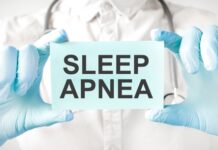Subsequent analyses of ASPEN trial data showed that both doses of brensocatib effectively reduced exacerbations in almost all subgroups of patients with non-cystic fibrosis bronchiectasis. The results were presented at the CHEST Annual Meeting in Boston, Massachusetts.
“Non-cystic fibrosis bronchiectasis is a chronic, progressive, inflammatory respiratory disease with diverse causes and variable clinical features,” wrote the authors, led by Mark Metersky.
The phase 3, randomized, double-blind ASPEN trial assessed brensocatib as a potential treatment for neutrophil-mediated diseases, including bronchiectasis. The drug is a first-in-class, small-molecule, oral, reversible inhibitor of dipeptidyl peptidase 1 (DPP1) that can prevent activation of neutrophil serine proteases, which are mediators of neutrophilic inflammation. The global study enrolled patients with bronchiectasis and a history of exacerbations in the previous 12 months. Subjects were randomized to receive once-daily brensocatib, either 10 or 25 mg or placebo for one year.
Results of the larger trial showed that both doses of brensocatib reduced the annualized rate of adjudicated pulmonary exacerbations over 52 weeks. The 10 mg dose reduced the rate by 21% (rate ratio, 0.789; 95% CI; 0.680–0.916; P=0.0019), and the 25 mg dose reduced the rate by 19% (rate ratio, 0.806; 95% CI, 0.694–0.936; P=0.0046), as compared with placebo.
Given the heterogeneity of the condition, the researchers sought to explore whether results from the overall trial would remain true for subpopulations. They assessed by age, gender, race, ethnicity, number of exacerbations in the prior 12 months, chronic antibiotic use, maintenance use of macrolides, Pseudomonas aeruginosa colonization status, Bronchiectasis Severity Index score, bronchiectasis computed tomography score, FEV1 % predicted, region, eosinophil count, smoking status, use of inhaled steroids, history of asthma, history of chronic obstructive pulmonary disease, and hospitalization in the prior 24 months.
They found that the rate of exacerbations continued to favor brensocatib at both doses in almost all subgroups. The incidence of adverse events also mirrored the larger trial, and the most common were COVID-19, nasopharyngitis, cough, and headache.
Reference
Metersky ML, Burgel P-R, Daley CL,et al. Annualized exacerbation rate in patients with non-cystic fibrosis bronchiectasis by prespecified subgroups in the ph3, randomized, double-blind, placebo-controlled ASPEN trial. Abstract #3186. Presented at the CHEST Annual Meeting; October 6-9, 2024; Boston, Massachusetts.





